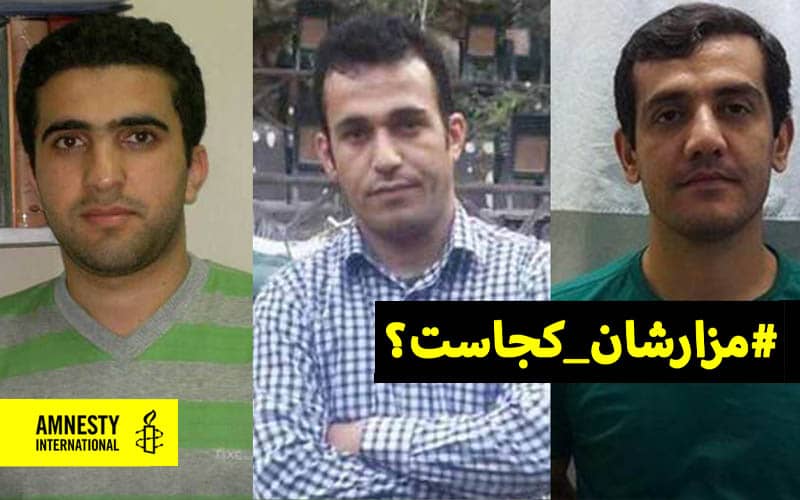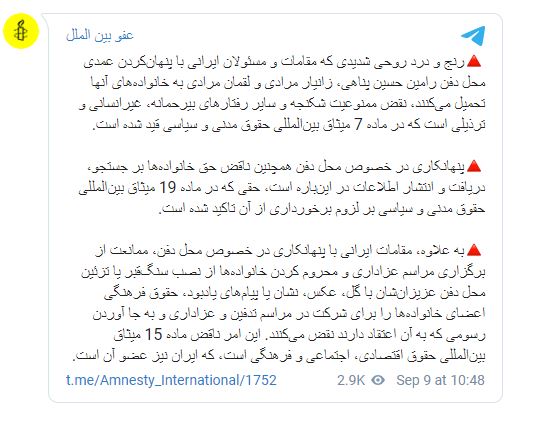
By Jubin Katiraie
Three Kurdish political prisoners, Ramin Hossein Panahi, and Zaniar and Loghman Moradi, were executed by the Iranian regime. Their executions have resulted in calls by the international community for the regime to put an immediate halt to executions in the country.
The families of these three Kurdish men have been trying to find out where the bodies of their loved ones have been laid to rest, adding to their already agonizing situation.
Ramin Hossein Panahi, 24 years old, Loghman Moradi, 32 years old, and Zaniar Moradi, 30, were executed in Gohardasht Prison in Karaj. As with many political prisoners, their trials were a shambles and a mockery of the legal system. Not only were they tortured into making confessions, but they were also denied access to lawyers and to their families.
Despite Modest Reduction in 2017 Executions, Iran’s Abuse of Death Penalty Continues
Earlier this week, international organization Amnesty International has called on the Iranian regime to stop torturing the families and to answer their questions.

In a statement, Amnesty International described the regime’s treatment of the families of the three executed mean as “severe psychological suffering”. The organization also stated that the Iranian regime’s deliberate concealing of their burial places “is a violation of the prohibition of torture and other cruel, inhuman or degrading treatment and punishment found under Article 7 of the International Covenant on Civil and Political Rights”.
Amnesty International explained that the regime’s secrecy on this issue is a violation of the rights of the families. Not only are the families not told where their loved ones are buried, but they are also, as a consequence, being prevented from holding a mourning ceremony and from placing a tombstone in their memory. They are denied a burial place and cannot visit a grave site to pay their respects, lay flowers, place photographs, and so on. This, said Amnesty International, is a violation of “cultural rights of family members to attend funerals”.
The statement read: “This violates Article 15 of the International Covenant on Economic, Social and Cultural Rights, to which Iran is adhered.”
The families of these men are distraught. The mother of young Ramin Hossein Panahi said: “There is no grave to cry over. I have been restless for the past few days. I have cried on the grave of my other child, Ashraf Hossein Panahi. My Ramin was innocent. Why don’t you let me at this old age, me and his father, to visit our child’s grave?”
The treatment of political prisoners in Iran is very concerning. Their dreadful mistreatment by the regime is partly an attempt by authorities to dissuade further dissent in society.
However, the regime’s attempts to bully the people into silence are not working. If anything, it is making the people of Iran even more determined to speak out against the regime.
Earlier this week, two prisoners were executed in secret. The only details known about these executions are that they were in the cities of Karaj and Borujerd.
It is the responsibility of the international community to finally speak up and hold the regime accountable.
Urgent Action Needed to Save the Lives of Political Prisoners


